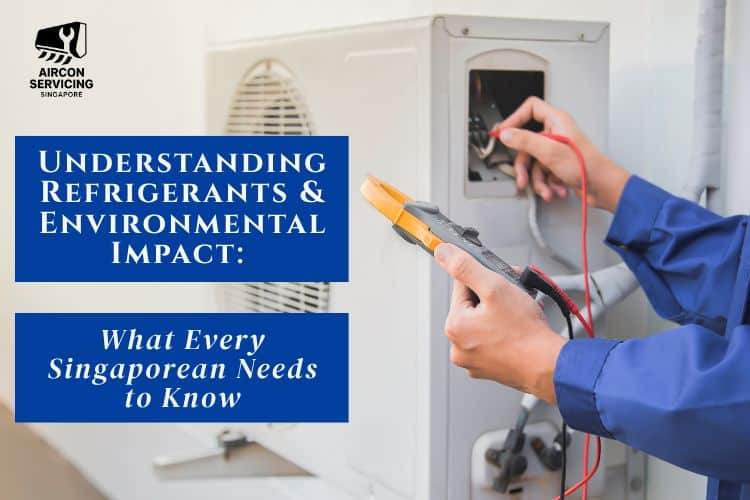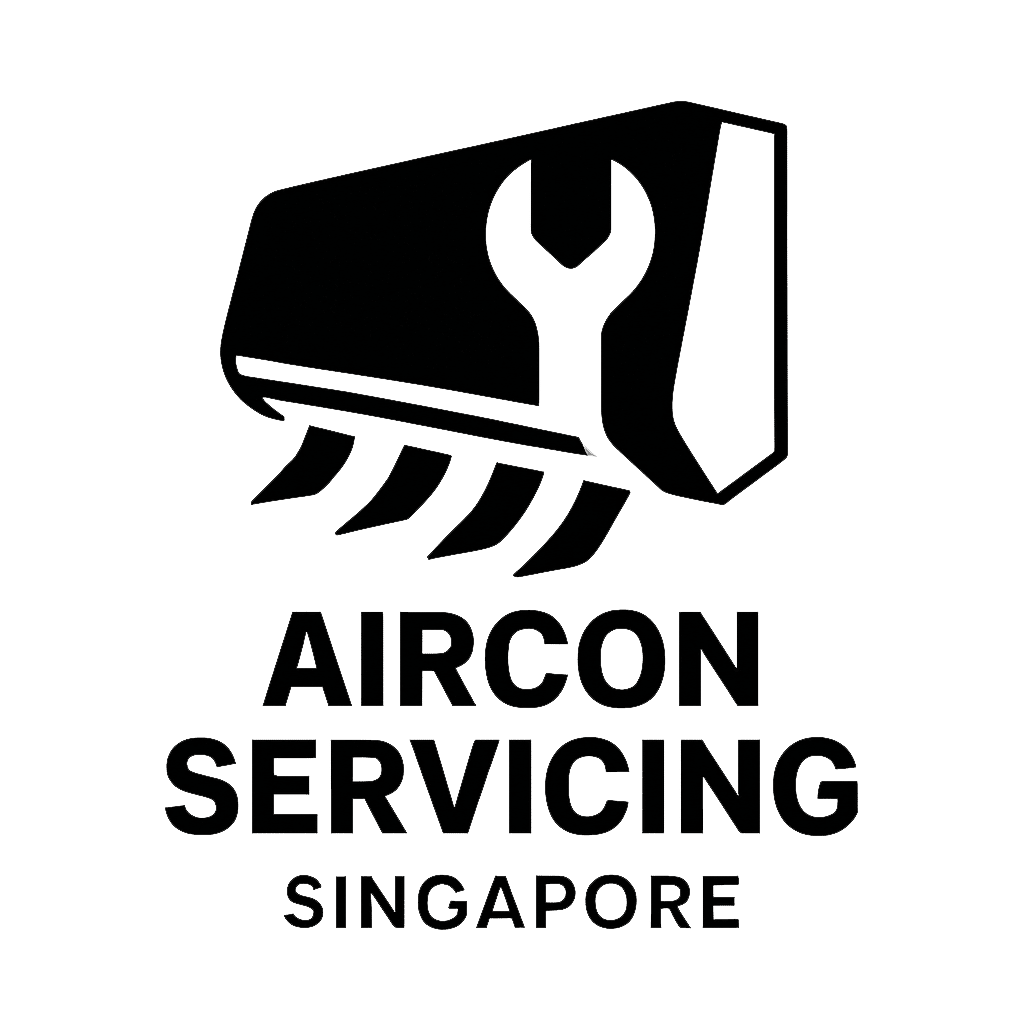
When you schedule aircon servicing in Singapore, you’re not just maintaining comfort—you’re also making an environmental choice. One of the most overlooked aspects of professional aircon servicing is the type of refrigerant used in your system. Different refrigerants have different environmental impacts, and staying informed helps you choose wisely and remain compliant with local regulations.
In this article, we’ll explore the most common refrigerants used in Singapore like R-22 and R-410A, their environmental impact, regulations that govern them, and how your choice of aircon servicing company can make a big difference.
What Are Refrigerants and Why Do They Matter?
Refrigerants are chemical compounds that absorb and release heat, allowing air conditioners to cool indoor spaces. They’re essential for any cooling system, whether in residential homes or commercial aircon servicing setups. However, not all refrigerants are created equal.
Older refrigerants like R-22 (also known as HCFC-22) are harmful to the ozone layer and contribute significantly to global warming. Newer options like R-410A and R-32 are more environmentally friendly and are becoming the standard in best aircon servicing in Singapore.
R-22: The Old Polluter (Being Phased Out)
R-22 was once the most common refrigerant in Singapore. However, it has a high ozone depletion potential (ODP) and a significant global warming potential (GWP). Due to international agreements like the Montreal Protocol, R-22 is being phased out globally, including in Singapore.
Why You Should Replace Your R-22 System:
- No new supply: Singapore has restricted the import and use of R-22 since 2020.
- Servicing gets expensive: Prices for R-22 are rising due to scarcity.
- Non-compliance: Continuing to operate old R-22 units could put you at legal or environmental risk.
- Aircon servicing price for R-22 systems is no longer cost-effective.
Tip: If you’re still using an old R-22 system, consider upgrading to a modern unit during your next aircon servicing package or routine check-up.
R-410A: The Current Standard
R-410A, also known as Puron, is a hydrofluorocarbon (HFC) with no ozone depletion potential. It is currently the standard refrigerant used in newer systems serviced by Aircon Servicing Singapore and other reputable providers.
Benefits of R-410A:
- More efficient: Better cooling performance and energy efficiency.
- Safe for the ozone layer: No ozone depletion potential.
- Widely available: Compatible with most new aircon models and aircon servicing courses.
However, R-410A still has a relatively high global warming potential, which has led to the rise of even more eco-friendly alternatives.
R-32: The Future of Green Cooling
R-32 is gaining popularity for its low GWP (Global Warming Potential) and higher energy efficiency. It’s used in many eco-certified aircon systems and is becoming the refrigerant of choice in Singapore aircon servicing.
Why R-32 is Better:
- Lower GWP: About 68% lower than R-410A.
- High efficiency: Cools better using less energy.
- Lower servicing cost: New systems are designed to minimize leaks and require less refrigerant.
Aircon Servicing Singapore offers full support for R-32 systems as part of its aircon servicing & repair Singapore solutions.
Servicing & Environmental Compliance in Singapore
In Singapore, the National Environment Agency (NEA) regulates the use of refrigerants and encourages regular aircon servicing contracts to reduce leakage and improve system efficiency.
Why Regular Servicing Matters:
- Leak detection: Prevents harmful refrigerants from escaping.
- Proper disposal: Certified technicians safely recover and dispose of old refrigerants.
- Energy savings: Clean systems use less electricity, reducing your carbon footprint and utility bills.
If you’re wondering how often aircon servicing is needed, the general guideline is every 3-4 months for homes, and monthly for commercial units.
Environmental Cost vs. Aircon Servicing Price
A common concern is the aircon servicing price Singapore residents must pay. While eco-friendly systems may come with a higher upfront cost, they offer:
- Lower electricity bills
- Longer lifespan
- Better resale value
- Peace of mind with environmental compliance
When comparing providers, don’t just look for cheap aircon servicing Singapore—look for value, compliance, and environmental responsibility.
Choosing the Best Aircon Servicing in Singapore
When looking for the best aircon servicing, consider these criteria:
- NEA-certified technicians trained in eco-compliant practices.
- Support for newer refrigerants like R-32 and R-410A.
- Transparent breakdown of aircon servicing cost Singapore residents can trust.
- Strong aircon servicing Singapore review presence.
- Flexible aircon servicing deals and packages.
Aircon Servicing Singapore is your go-to for all this and more. From servicing aircon units in HDB flats to commercial aircon servicing for offices, we help you stay cool—and compliant.
Final Thoughts
Understanding refrigerants isn’t just technical—it’s essential for making sustainable choices that protect your wallet, your home, and the environment. As Singapore transitions to greener technologies, partnering with the right aircon servicing near me provider ensures you’re on the right track.
Choose Aircon Servicing Singapore—where expertise meets eco-awareness.
FAQs
1. What refrigerant should I choose for my home aircon in Singapore?
R-32 is currently the most eco-friendly and efficient choice. R-410A is still widely supported and safe.
2. Is it legal to use R-22 in Singapore?
While not banned outright, R-22 is being phased out and restricted. It’s best to upgrade to avoid compliance issues.
3. How often should I service my aircon?
- Homes: Every 3–4 months
- Offices/commercial: Monthly or based on usage
Regular servicing reduces refrigerant leakage and improves performance.
4. What’s the average aircon servicing price in Singapore?
Prices start from $30 per unit for basic servicing. Chemical cleaning or gas top-up may cost more. Look for transparent aircon servicing Singapore price packages.
5. Is there a course for learning aircon servicing in Singapore?
Yes! Aircon servicing course Singapore options are available for aspiring technicians. Always choose NEA-approved programs.
6. How do I know if my refrigerant is leaking?
Signs include:
- Poor cooling
- Hissing sounds
- Higher energy bills
- Ice forming on coils
Always consult aircon servicing & repair Singapore experts like us if you suspect a leak.
Need help choosing the right refrigerant or servicing plan? Contact Aircon Servicing Singapore today for professional advice and unbeatable service packages!
